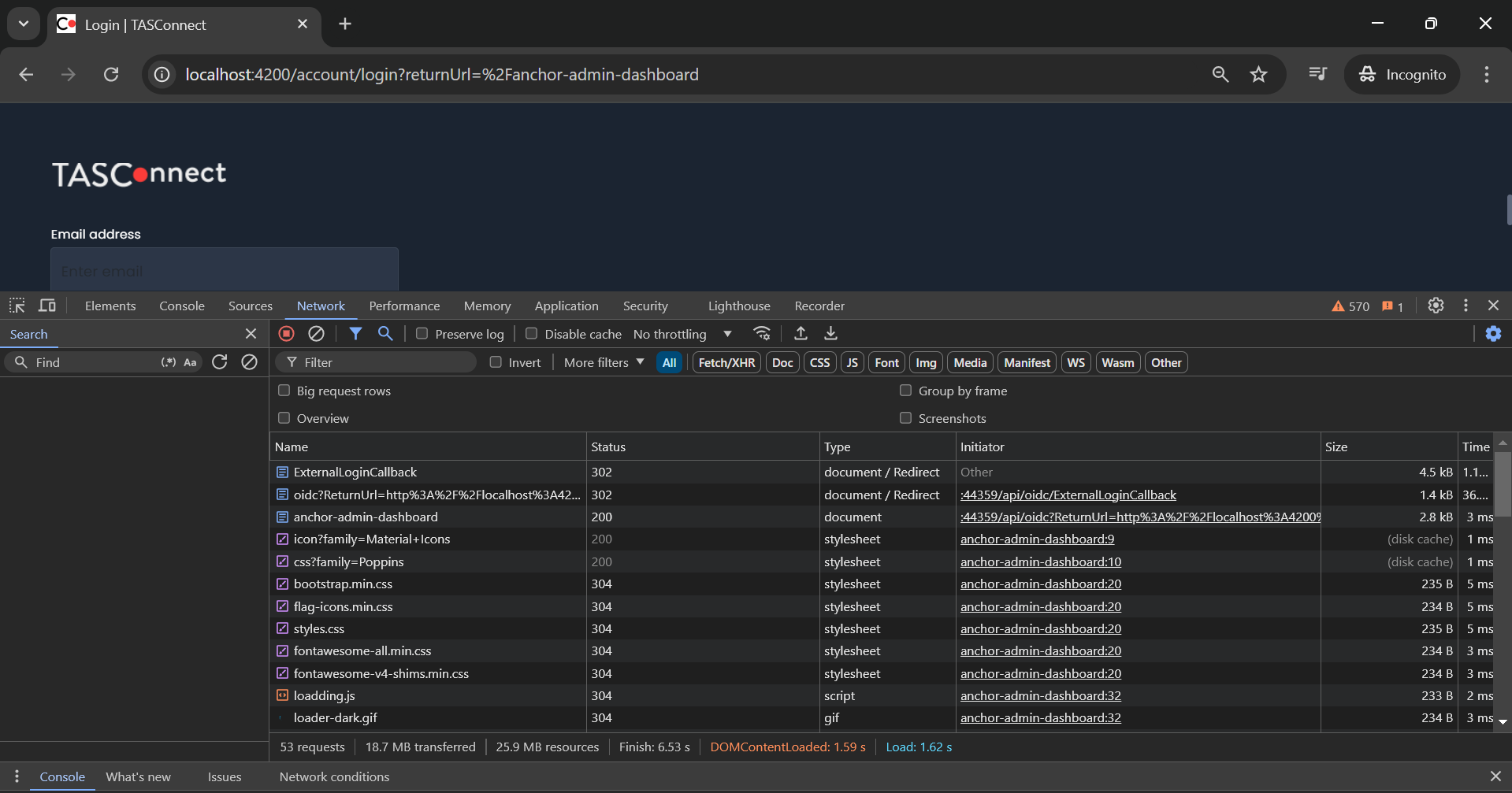hi
This issue is highly escalated into our organization and we certainly need you to look into this matter and provide support to resolve it.
Can you ask other colleagues if they can reproduce the problem?
I have explained a lot of the content of the problem.
References: https://abp.io/support/questions/8267/Tenant-Id-and-Tenant-Name-Not-Set-in-Header-After-Dashboard-Redirect-SSO-OIDC?CurrentPage=2#answer-3a163ae6-c2bb-7256-cbd1-03ecdb09add8 https://abp.io/support/questions/8267/Tenant-Id-and-Tenant-Name-Not-Set-in-Header-After-Dashboard-Redirect-SSO-OIDC?CurrentPage=2#answer-3a163adf-89f4-6c29-5e28-87e18a775dd7
Hi ,
I have also observed this issue in my project, but we are unsure how to fix it and are requesting your assistance with an exact solution. Additionally, i have mention there could you confirm whether my observations are correct? Please suggest any improvements.
References: https://abp.io/qa/questions/8267/3a1631ff-02f3-d3aa-8ce8-71ef2e8c7a4b https://abp.io/qa/questions/8267/3a163685-5208-701a-241c-c522991ace5a
However, we both understand what the issue is, but I am unable to resolve it, which is why we need your assistance.
hi
Remote troubleshooting will take too much time, especially under poor network conditions.
We've been discussing this issue for more than a month and it still hasn't been resolved. The best approach now is to take a call and finish this as soon as possible.
However, We hold the enterprise license (20 licenses) for the framework and requesting to take a remote session to help us in resolving this issue. This issue is highly escalated into our organization and we certainly need you to look into this matter and provide support to resolve it.
ok, You can create a private GitHub repo and invite me as a contributor.
https://github.com/maliming
I can't do this directly without permission, and I don't think they will allow me to proceed with this approach.
We cannot share our code repository outside of the organization. It's against the conduct.
I would still request a short call so you can quickly advise on how to fix the issue and suggest the proper resolution steps.
I tried, but it's very difficult for me. Let me share a trimmed-down version of the project, including the Angular and Identity service projects, so you can try it from your side.
Hi
We have an old ABP 3.1 microservices template, but it has been upgraded to the latest version. Additionally, We have overridden the ABP login page and created a custom login template with specific changes to our project.
It is very difficult to reproduce the same issue in a POC project. I attempted to replicate the issue in the POC project, but it was not possible.
Thanks
hi I have checked the latest har file
Can you try to set
redirect_uriashttp://localhost:4200at First auth2 login request?Your angular doesn't start the oauth2 login process.
If you can share a project that reproduces your problem, this would be the fastest way to troubleshoot the problem.
Which project you required Angular only or both Angular and the backend? Due to company policy, I can't share the entire source code. However, I can share specific files with a trimmed-down version of the project. So let me know which specific files are required?
I would suggest the fastest way to get on a 15-minute call so that you can get a good understanding of the project. This will help you suggest the exact issues and resolution steps.
Hi
Any update ?
and you can try to publish your angular&authserver website to internet. So I can check it online.
I have shared HRA and DEV URL over email please check.
hi
I'm off work(UTC+8) : (
Ok np we will connect tomorrow.
Can you try recording the har again?
I'm trying to record my screen, but once I open the network tab, it doesn't appear in the recording. Let me try one more time sharing it with you shortly.
Why do you have two har files?
After redirected anchor-admin-dashboard above request remove from network that's why share two hra file.

localhost:4200 -> login -> redirect - https://localhost:44333/Account/Login -> OpenIdConnect -> auth0.com(redirect url is https://localhost:44333/api/oidc/ExternalLoginCallback) signing at auth0 -> https://localhost:44333/api/oidc/ExternalLoginCallback -> http://localhost:4200/?code=UAbYI -> success

